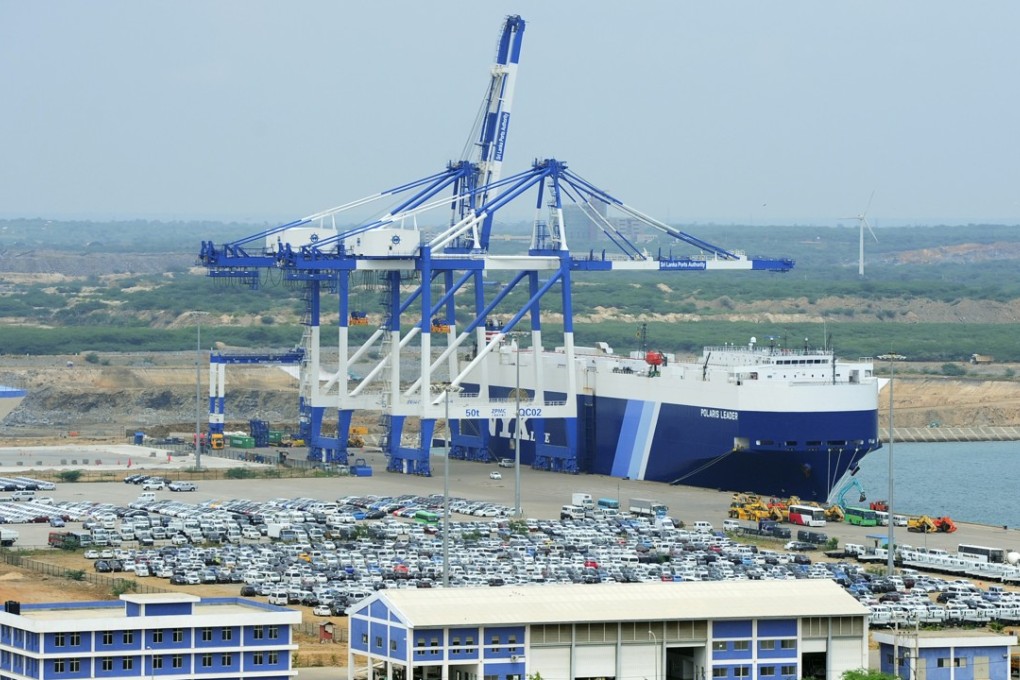A Chinese flag flies over Sri Lanka as China extends its reach into India’s backyard
Chinese investment in two of Sri Lanka’s biggest port projects raises military concerns for New Delhi

On the first day of the new year, the Chinese and Sri Lankan flags were hoisted to the same height over the Hambantota port in the Indian Ocean nation.
It was the first time the Chinese flag had risen over the loss-making facility which Sri Lanka formally handed over to a Chinese state firm in a US$1.12 billion deal.
The port deal is just one of a series of infrastructure forays China has made into Sri Lanka in a region usually regarded as India’s backyard.
The projects are part of China’s vast “Belt and Road Initiative” to link the country through land and sea trade routes to Africa and Europe and beyond.
The latest was announced on Tuesday when the Sri Lankan government said a Chinese-led consortium would build three 60-storey office towers next to the main port in the capital of Colombo, the region’s only deep-sea container facility.
Next door, China has earmarked US$1.4 billion for reclamation work for the wider Colombo International Financial City development, a project expected to become the first mid to high-end financial hub in South Asia and home 250,000 people.
The project was put on hold in 2015 over a “lack of necessary documents” when a new administration came to power, and work only got back on track in August the next year when state-owned China Communications Construction Company entered into a fresh agreement with the new government, despite geopolitical concerns from regional superpower India.